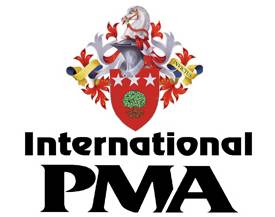Economics
Course Aims
- To understand the theoretical concepts underpinning economic performance and decision making
- To develop an analytical awareness of organisaitonal performance within an economy
Learning Outcomes
At the end of the course the student will have the ability to:
- Analyse supply and demand relationships
- Develop a framework for understanding micro / macro economics
- Understand how economic forces influence and impact upon business decision making
- Understand the theoretical bases for International Trade and Globalisation
Course Syllabus
- Introduction to Economics
- Supply and demand
- Government intervention in the market
- Profit maximisation under perfect competition and monopoly
- Profit maximisation under imperfect competition
- Alternative theories of the firm
- The theory of the distribution of income
- Redistribution of incomes
- Markets, Efficiency and the Public Interest
- Applied microeconomics
- The national economy
- Unemployment and inflation
- The open economy
- Short-run macroeconomic equilibrium
- Money and interest rates
- Fiscal and monetary policy
- Aggregate supply, unemployment and inflation
- Long-term economic growth and supply-side policies
- International trade
- The balance of payments and exchange rates
- Global and regional interdependence
- Economic problems of developing countries
Recommended Text
Book Title -: Economics
Author -: David Begg
Publisher -: McGraw Hill
ISBN No -: 0-07-707831-4
Additional Reading
Book Title -:Economics: Principles and Policy
Author -: Baumol & Blinder
Publisher -: Thomson South-Western
ISBN No -: 0-324-32343-3
Legal Environment of Business
Course Aims
- To enable the student to analyze and solve business related legal issues
- To understand clearly the importance business law as it relates to business practices and business decisions
Learning Outcomes
At the end of the course the student will have the ability to:
- Review contractual relationships and advise management on its legality and enforcement
- Determine the legal implications of business decisions
- Ensure that all business practices with customers, employees operate within the regulatory and legal framework
Course Syllabus
- The English Legal System
- The English Legal System and Business Litigation
- Contract Law
- Making the contract
- Reality of consent
- Contractual terms
- Contracts in restraint of trade and restrictive practices
- Discharge of contract
- Remedies and limitation of actions
- Sale of Goods
- The sale of goods
- Contracts for the supply of goods and services
- Supply of goods on credit
- Employment Law
- Employment
- Company Law
- Company law in the study of business
- Agency and Negligence
- Agency in companies and partnerships – the common law
- Negligence – generally and the business application
Recommended Text
Book Title -:Business Law
Author -: Rush & Ottley
Publisher -: Thomson
ISBN No -: 13 978-1-84480-173-2
Information Communications and Technology
Course Aims
- To provide the student with the skills to apply Information Technology into Business processess and organisations
Learning Outcomes
At the end of the course the student will have the ability to:
- Understand the elements of computer systems, including hardware, and software
- Design the most appropriate combination of hardware and software for administrative and information systems
- Evaluate and critically analyze software to meet organisational needs
- Understand the process of systems analysis and design
- Design database systems to meet the requirements of a Management Information System
- Understand the concepts of Networking, the Intranet and the Internet
- Develop appropriate security systems
- Discuss the impact of new Technology on staffing and organisational change
Course Syllabus
Information Technology, the Internet, and Organisations today
- Application Software
- Word Processing
- Spreadsheets
- Database Software
- Speciality Software
- Systems Software
- Hardware
- Microchips, CPU’s. Main components of a Computer System
- The System Unit
- Secondary Storage
- Peripheral Devices
- Input & Output
- Input Hardware
- Output Hardware
- Networks & Communications
- The Digital Age
- The Practical Uses of Communications
- The Conduits of Communications
- Networking Devices and Media
- Computer and Network Protocols
- The OSI Model
- Client / Server Systems
- Privacy, and Data Security
- Threats to Computers & Communications Systems
- Safeguarding Computers & Communications
- Information Systems
- Managing Files: Basic Concepts
- Database Management Systems
- Database Models
- Databases & the New Economy: E-Commerce, Data Mining, & B2B Systems
- The Internet
- Web, and Electronic Commerce
- Multimedia, Web Authoring, and More
- Systems Analysis and Design
- Programming and Languages
- Information Technology – the future
Recommended Text
Book Title -:Principles of Information Systems (8e)
Author -: Stair & Reynolds
Publisher -: Thomson Course Technology
ISBN No -: 0-13-120681-8
Business Management
Course Aims
- To provide the student with the basis for understanding how organisations operate effectively and effeciently
- To enable the student to explore the different functions of management and the underlying theories
- To enable the student to explore the various functions and activities of business organisations
Learning Outcomes
At the end of the course the student will have the ability to:
- Apply the main concepts necessary for effective management
- Appreciate the Social responsibilities of management and ethical practices
- Develop effective planning and control systems
- Understand the major activities of the organisation and their effective co-ordination
- Produce effective policies for effective organisation
- Develop awareness of the diffrerent perspectives of leadership
- Understand the human aspects of management
- Implement policies for job design and motivation
Course Syllabus
- Introduction to Management and Organizations
- Definition of Management
- Defintion of Organisations
- Different forms of Organisations
- Approaches to Management
- Historical Background of Management
- Scientific Management
- General Administrative Theorists
- Quantitative Approach
- Systems Approach
- Human Relations Approach
- Organisational Cultureand Ethical
- Organisational Culture and the Environment
- Social Responsibility and Managerial Ethics
- Planning
- Decision-Making
- The Decision-Making Process
- Purpose of Planning
- Strategic Management
- The Strategic Management Process
- Planning Tools and Techniques – Environment scanning, SWOT Analysis
- Organizing
- OrganisationalStructure
- Organisational Design – Functions, Product, Matrix
- Span of Control
- Delegation and Empowerment
- Managerial Communication
- Understanding Managerial Communication
- Interpersonal Communication
- Organisational Communication
- Leading
- Motivating Employees
- Theories of Motivation
- Leadership
- Leadership Theories
- Controlling
- Foundations of Control
- The importance of control
- The Control Process
- Types of Control
- Organisastional Functions
- Human Resource Management
- The Human Resource Management Process
- Recruitment and Selection
- Employee Training
- Compensation and Benefits
- Career Development
- Operations Management
- Techniques for Effective Operations Management
- Marketing
- Concepts of Marketing
- Effective Marketing
- Information Technology
- Impact of IT on the organisation
- Process for implementing IT for Decision Making and effective Management
- Office Administration
- Office Design
Recommended Text
Book Title -:Management: Competing in the New Era (5e)
Author -: Bateman & Snell
Publisher -: McGraw Hill
ISBN No -: 0-07-240859-6
Statistical Methods for Business
Course Aims
- To enable the student to develop appropriate skills in the application of statistical methods
- To provide the basis for statistical analysis and interpretation
Learning Outcomes
At the end of the course the student will have the ability to:
- Apply and use statistical techniques for determining relationships between data
- Describe data and their relationships
- Interpret the results of data collection and statistical analysis
- Understand and apply probability analysis and their distributions
Course Syllabus
- Data Presentation and Collection
- Frequency distribution and tables
- Histograms
- Frequency polygons and curve
- Cumulative Frequency
- Bar charts, Pie charts, Lorenze curve
- Central Location and Dispersion
- Measures of central location
- Normal and skewed distributions
- Dispersion
- Coefficient of variation
- Regression and Correlation
- Regression analysis
- Correlation
- Multiple Regression
- Time and Series Forecasting
- Time series analysis
- Moving average
- Seasonal variations
- Forecasting and exponential smoothing
- Probability
- Probability calculations
- Conditional probability
- Decision Trees
- Expected value
- Probability Distributions
- Normal Distribution
- Binomial Distribution
- Poisson Distribution
- Sampling and Tests of Hypotheses
- Types and distribution of samples
- Central Limit Theorem
- Confidence Intervals
- Tests of Hypotheses
- Index Numbers
- Weighted agreegate index numbers
- Laspeyres price and quantity index
- Paasche price and quantity index
- The Retail Price Index
- Time Value of Money
- Simple and Compound interest
- Present value
- Investment appraisal
- Depreciation
- Annuities
- Linear Programming and Break-even Analysis
- Maximisation
- Minimisation
- Break even analysis
Recommended Text
Book Title -:Statistics for Management and Economics (7e)
Author -: Gerald Keller
Publisher -: Thomson Brooks/Cole
ISBN No -: 0-495-01339-0
Additional Reading
Book Title -:Quantitative Methods for Business Decisions
Author -: Curwin & Slater
Publisher -: Thomson
ISBN No -: 13 978-1-84480-574-7
Principles of Finance
Course Aims
- To enable the student to understand the need and importance of accounting systems, procedures and practice
- To enable the student to appreciate the need for accounting data for management decision making
Learning Outcomes
At the end of the course the student will have the ability to:
- Understand the requirements for maintaing proper and correct records of financial transactions
- Produce financial information to satisfy the financial informational requirements of users internally and externally of the organisation through the preparation of income statements / profit & loss accounts, balance sheet and cash flow statements
- Analyse and interprete financial statements
- Review the different forms and sources of finance
- Evaluate financial accounting software
Course Syllabus
- Basic accounting principles
- The Accounting system and application of accounting principles
- The role of accountants
- The nominal ledger
- The memorandum sales and purchase ledger and control accounts.
- Income and expense accounts, the income statement and the Balance Sheet
- Day books and journals
- End of period adjustments
- V.A.T and V.A.T returns
- Accruals and prepayments
- Depreciation
- Bad debts and provision
- Cash control and bank reconciliation
- Preparation of Financial Statements
- Accounts for sole traders
- Accounts for Partnerships,
- Accounts for Limited companies.
- The form and content of published financial reports.
- Cash flow statement and FRS3
- Interpretation of Financial Statements
- Ratio Analysis
- Cash Flow and Working Capital
- Introduction to Company finance
- The issues of shares, payment of dividends
- Conversion from unlimited to limited liability
- Other sources of finance
- Computerised Accounts
- Introduction to computerised systems and SAGE
- The sales ledger and credit control and the purchase ledger
- Establishing the computerised system
- The chart of accounts
- Basic audit trails and controls
**note: other accounting software may be used for the basis of understanding computerised accounts
Recommended Text
Book Title -:Financial Management (3e)
Author -: Megginson et al.
Publisher -: South-Western/Cengage
ISBN No -: 13 978-0-538-74558-1


